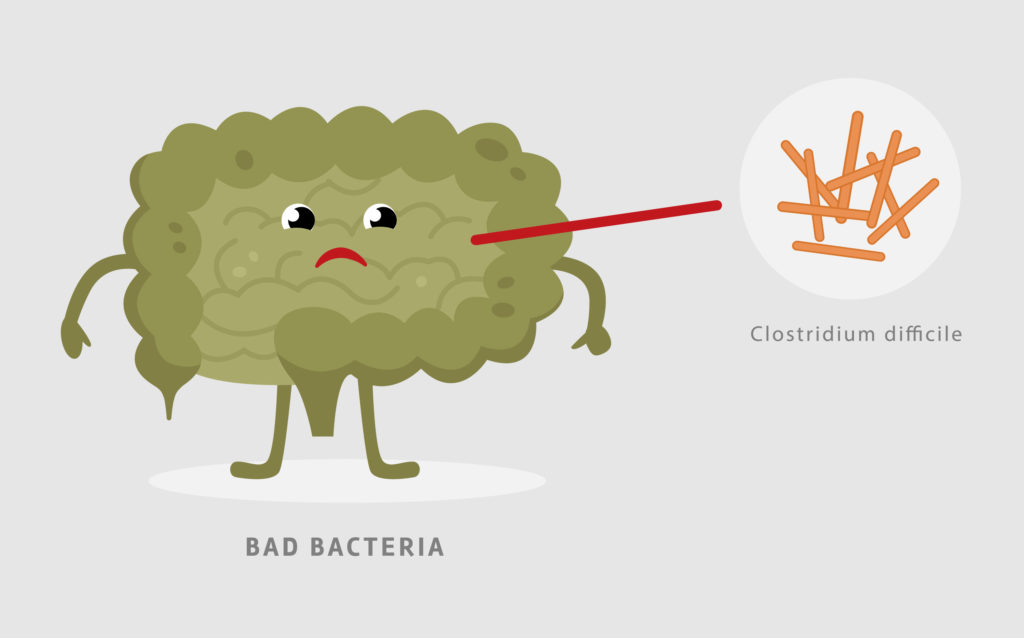Two medical articles(1,2) published last month received a considerable amount of attention; I think they are very pertinent to the discussion of whether to take a probiotic to counter the risks of taking medications for the suppression of gastric acid.
Every day we are bombarded with ads about the benefits of taking medications to lessen the symptoms of heartburn and indigestion. Additionally, the medical profession recommends taking acid suppressive medicines to avoid the development of stomach ulcers as a side effect of taking pain and arthritis drugs like Advil and Aleve.
For years the mainstay of treatment was medications like Tums and Maalox – both antacids. They buffer or neutralize the acid produced by the stomach and are commonly used to relieve heartburn symptoms. Unfortunately, they have been only partially successful.
The pharmaceutical industry has developed better drugs that can lower or prevent acid production by the stomach’s acid producing cells. The most popular and effective of these medications to inhibit gastric acid production are called proton pump inhibitors or PPIs.
Proton pump inhibitors are big business in the United States: “A staggering 113.4 million prescriptions for proton pump inhibitors (PPIs) are filled each year, making this class of drugs, at $13.9 billion in sales, the third highest seller in the United States” (3).
There are 5 medications in this class of drugs which we all know thanks to the television ads: Prilosec, Prevacid, Protonix, Aciphex and the most famous – the purple capsule – Nexium.
What is the Concern with PPI Medications?
Since their introduction in 1998, there has been a progressive increase in intestinal infections with the bacterium called Clostridium difficile (C. difficile).
C. difficile causes a severe diarrhea and life threatening colitis. Roughly 3-5% of the healthy adult population has this bacterium in their intestines. These individuals do fine until they are given an antibiotic for an infection like pneumonia or sinusitis. The antibiotic wipes out the healthy intestinal bacteria which then allows the C. difficile to multiple and produce a toxin that causes a serious colitis. In addition, hospitalized patients are at risk of acquiring this bacterium from contaminated bed rails and other surfaces(4).
Risks of Acid Suppression Therapy
There has been an increasing rate and severity of C. difficile infections in hospitalized patients. Acid suppressive therapy has been suggested as a risk factor. The articles previously mentioned studied the risk of hospitalized patients taking PPI’s and developing C. difficile infections. The first study(1) found a 70% increased risk of a C. difficile infection in patients taking a PPI versus patients not receiving a PPI.
The second article(2) studied the risk of recurrent C. difficile infections in hospitalized patients taking PPIs. These patients had been successfully treated for a C. difficile infection. There is a known recurrent rate of 20% after treatment. The concern was if PPIs could increase the risk of recurrent infections. The study found that recurrent C. difficile infection rate was 42% higher in those patients receiving PPIs vs. patients not receiving PPIs.
The exact reason why PPIs increase the risk for C. difficile infection is unknown. One potential mechanism has to do with the ability of gastric acid to destroy harmful bacteria. It is known that the stomach acid is the first defense against ingested harmful bacteria in contaminated drinks and foods. The harmful bacteria are destroyed by the stomach acid and never have an opportunity to invade the intestines.
Experimental studies in mice and hamsters have shown an increase in susceptibility to C. difficile infections when the stomach acid is suppressed(5). In addition, other studies have found that humans are more susceptible to other intestinal infections when the gastric acid is suppressed.
Based on a number of reports(6), there is reason to believe that probiotics may help to lessen the risk of C. difficile infections in patients taking PPIs. Probiotics have been shown to produce proteins that destroy harmful bacteria. In addition, they interact with the intestinal immune system to stimulate the immune reaction against harmful bacteria.
Take Home Message
Consider taking a high quality probiotic like EndoMune if you are going to be on long-term PPIs. If someone needs to be hospitalized, consider taking a probiotic to lessen the risk of acquiring a C. difficile infection, especially if PPIs and/or antibiotics are prescribed.
Thank you for your interest in EndoMune.
Eat healthy, exercise and live well!
Dr. Lawrence Hoberman
(1) Arch Intern Med. 2010 May 10;170(9):784-90.Iatrogenic gastric acid suppression and the risk of nosocomial Clostridium difficile infection.Howell MD, Novack V, Grgurich P, Soulliard D, Novack L, Pencina M, Talmor D
(2) Arch Intern Med. 2010 May 10;170(9):772-8.Proton pump inhibitors and risk for recurrent Clostridium difficile infection.Linsky A, Gupta K, Lawler EV, Fonda JR, Hermos JA.
(3) Arch Intern Med. 2010 May 10;170(9):747-8.Failing the acid test: benefits of proton pump inhibitors may not justify the risks for many users.Katz MH.
(4) Am J Infect Control. 2010 Jan 31. [Epub ahead of print]Significant impact of terminal room cleaning with bleach on reducing nosocomial Clostridium difficile.Hacek DM, Ogle AM, Fisher A,Robicsek A, Peterson LR.
(5) Microbiol Immunol. 2007;51(12):1209-14.Comparative role of antibiotic and proton pump inhibitor in experimental Clostridium difficile infection in mice.Kaur S, Vaishnavi C, Prasad KK, Ray P,Kochhar R.
(6) Am J Gastroenterol. 2006 Apr;101(4):812-22.Meta-analysis of probiotics for the prevention of antibiotic associated diarrhea and the treatment of Clostridium difficile disease.McFarland LV.

 It’s not a big stretch to say over-the-counter heartburn drugs — proton pump inhibitors (PPIs) like esomeprazole (Nexium), lansoprazole (Prevacid) and omeprazole (Prilosec) — are some of the over-prescribed, overused medications on the consumer market in America.
It’s not a big stretch to say over-the-counter heartburn drugs — proton pump inhibitors (PPIs) like esomeprazole (Nexium), lansoprazole (Prevacid) and omeprazole (Prilosec) — are some of the over-prescribed, overused medications on the consumer market in America.